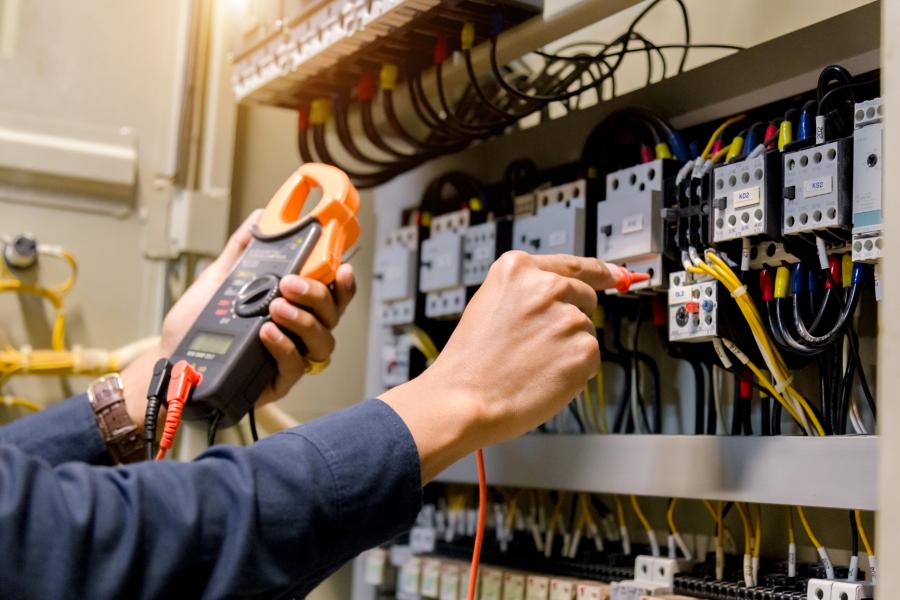
SCIOS certification
Legislation and the policy terms of (a growing number of) insurers require operators and owners of electrical engineering and combustion plants to have periodical SCIOS certification inspections carried out. SCIOS certifications are conducted by way of inspections. A certification body that is accredited for verifying compliance with the requirements of the SCIOS certification scheme assesses and certifies installation companies that perform SCIOS inspections. The requirements of the certification scheme are geared towards quality, health & safety and the environmental health performance of technical installations.
Scope of application
The SCIOS certification scheme or certification standard is intended for all companies that carry out (periodic) maintenance and inspections of technical installations.
Norm
The SCIOS certification scheme is based on ISO 9001 and sets out both the requirements of this standard as well as supplementary part schemes for the specific areas of application. The scheme has so-called ‘scopes’ which define the operating areas in which maintenance and inspection companies may operate in the area of technical installations. The standard requirements are geared towards the company’s quality system, plus it sets out the requirements that apply in respect of the expertise and professional proficiency of the operational staff.
Bureau Veritas is available to conduct your SCIOS certification for effectively all scopes included in the part schemes of the SCIOS certification scheme. Check out this link for further details: https://benelux.bureauveritas.com/en/scios
The SCIOS certification track
The SCIOS certification scheme is mandatory. Once the certificate has been obtained, it remains valid for three years. A distinction is made between various inspections, i.e. Initial/special inspections, periodic SCIOS inspections and periodic maintenance. Companies can have themselves certified for one or several combinations of activities and operating areas (scopes).
The three-year cycle starts out with the certification investigation. Bureau Veritas Certification will then conduct an annual interim inspection throughout the duration of the certificate, so you are demonstrably and enduringly compliant with the standard requirements. The expertise of the operating staff is also tested in a practical sense every 18 or 36 months, depending on the type of activities your company carries on.
After the certification cycle has ended, a new three-year cycle can be initiated which starts out with a re-certification audit. The SCIOS certification scheme is conducted for the scopes concerned under the accreditation and supervision of the Raad voor Accreditatie (RvA) (Accreditation Board).
Please do not hesitate to get in touch with us for further details or a no obligation quote for your SCIOS certification. We are happy to offer personalised advice. Give us a call at +31(0) 88 450 56 00.
For further details on SCIOS-certified companies and the SCIOS scopes, please go to www.scios.nl.
-
SCIOS Scopes
Scope 1: Atmosferische verwarmingsketels en luchtverhitters; Scope 2: Warmwaterketels en luchtverhitters met ventilatorbranders; Scope 3: Stoomketels en heetwaterketels; Scope 4: Verbrandingsmotoren en -gasturbines;Scope 5: Bijzondere industriële installaties (bijvoorbeeld (smelt)ovens, fornuizen in de procesindustrie, drooginstallaties, naverbranders); Scope 5a: Installaties gestookt op vaste brandstoffen; Scope 6: Emissiemetingen (NOx, SO2, CxHy en stof in de verbrandingsgassen); Scope 7a: Brandstofleidingen voor aardgas met een ontwerpdruk ≤ 0,5 bar; Scope 7b: Brandstofleidingen voor aardgas met een ontwerpdruk > 0,5 bar; Scope 7c: Brandstofleidingen voor olie; Scope 8: Elektrische installaties; Scope 9: Elektrische Arbeidsmiddelen; Scope 10: Inspectie van elektrisch materieel op brandrisico’s; Scope 12: Zonnestroominstallaties; Scope 14: Verwarmingssystemen in gebouwen.